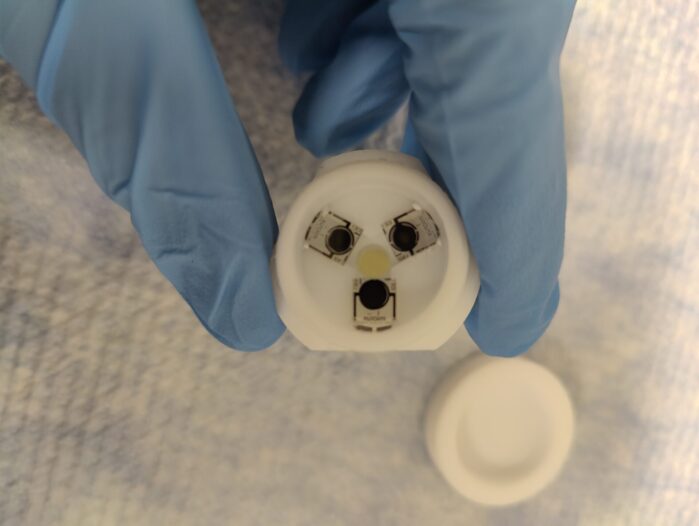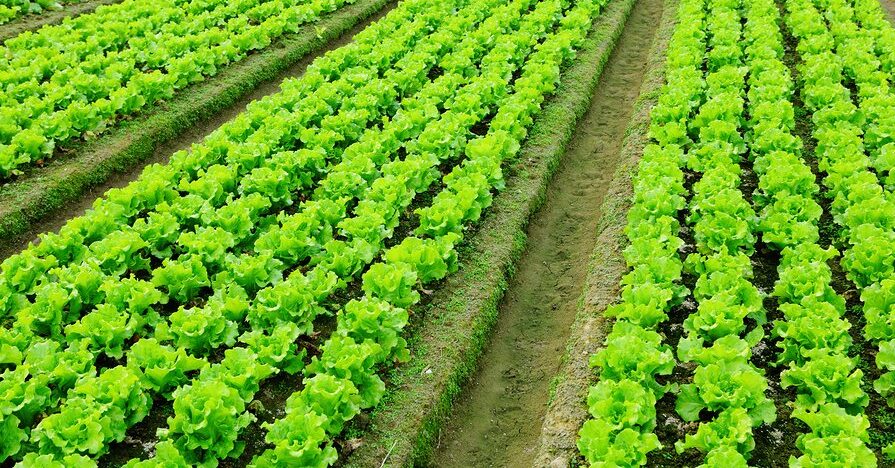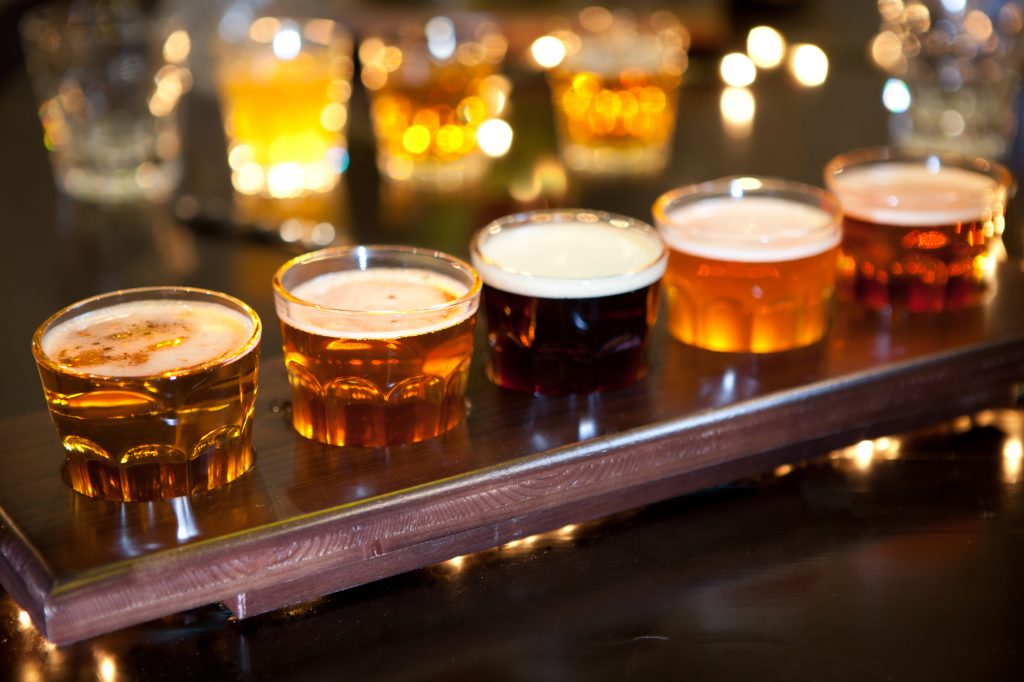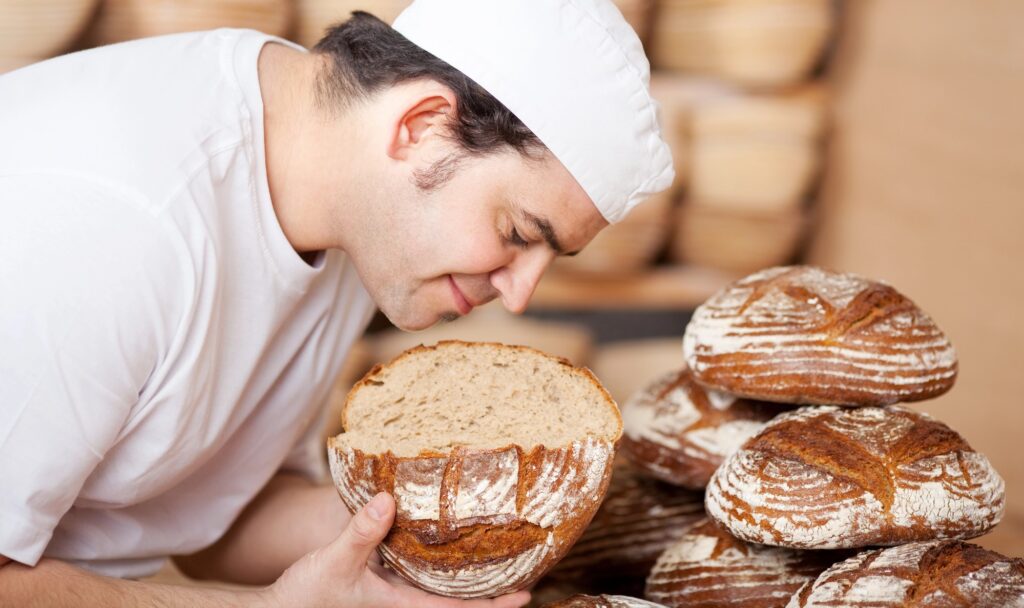An Israeli startup has created an artificial “nose” that can quickly sniff out decay-causing bacteria in food – telling us whether or not it is safe to eat.
Sensifi, which was established in 2021, uses sensors to detect volatile organic compounds (VOCs) emitted by bacteria commonly found in foods, such as listeria, salmonella and E. coli.
The tiny sensors – electrodes covered with carbon nanoparticles – can identify potentially dangerous bacteria in just an hour or two, depending on the levels of the microorganisms present in the food. This is far faster than the usual period of several days required by lab testing.
“When bacteria grow on surfaces, they emit into the air various volatile organic compounds,” explains Prof. Raz Jelinek of Ben-Gurion University of the Negev, who developed the technology along with Sensifi CTO and PhD student Nitsan Shauloff.
“The sensors can attract and bind the [VOCs] that are secreted by bacteria through the air when they grow,” he tells NoCamels.

When the VOCs emitted by the bacteria bind to the sensors, they cause changes in the sensors’ capacitance (ability to hold an electrical charge) making the microorganisms observable.
“We can detect even minute changes in the [sensors’] capacitance to be able to tell you that there are bacteria nearby,” Jelinek says.
What is more, he adds, the different bacteria emit different variations of VOCs, making it possible to identify which pathogens are present in the food. This, explains Jelinek, is each bacterium’s “fingerprint.”
The data about the bacteria would then be transmitted to an accompanying app on a mobile device, alerting to a contamination and pinpointing the culprit.
Using machine learning, the startup taught the sensors to spot the most common bacteria that cause food to be unsafe, including salmonella (frequently found in badly prepared poultry and eggs) and listeria (often linked to cheese and raw produce). In fact, listeria fears have led to multiple warnings about lettuce in the US.
“Obviously, there’s thousands of bacteria out there, and you cannot really teach the sensor all these bacteria,” Jelinek says. “But when you talk about food contamination, usually there are the usual suspects.”
Sign up for our free weekly newsletter
Subscribe
Illness due to foodborne disease poses significant challenges worldwide. There are around 600 global million cases of illness and some 420,000 deaths due to foodborne diseases every year, according to the World Health Organisation. What is more, around 30 percent of the deaths caused by unsafe food occur among children under the age of five years.
For now, Jelinek says, the sensors are being designed for the food industry, in locations such as factories and processing plants.
He gives the example of Israeli food giant Strauss, whose plant near Haifa several years ago tested positive for salmonella. Every item made in the factory had to be recalled, including products sent to the US, Europe and Australia.
“One advantage of our sensors is that they are extremely cheap, so you can distribute tens or hundreds of sensors in strategic locations,” Jelinek explains.
“Each sensor is going to transmit signals to the app and you can see where exactly you have a risk of contamination,” he says. “If you’re a food company, you’re going to have sensors in your product facility, you’re going to have sensors in your storage area,” he says.

Even so, Sensifi CEO Modi Peled told the media last year that technology could be extended to other fields, including determining which bacteria is present in a patient’s body in order to decide on a specific course of antibiotics or even ensuring that yeast used in brewing beer is of an acceptable standard.
The startup has proven its electronic nose’s viability in lab tests, and is now creating a prototype that can be used by companies. It has received funding from the Israel Innovation Authority, the branch of the government dedicated to promoting the high-tech sector, and entrepreneurial support from Ben-Gurion University’s startup accelerator program Oazis.
The prototype will be ready in the coming months, and, according to Jelinek, will be a unique product.
“There are no ‘noses’ for monitoring bacteria in the food industry,” he says. “Very very few electronic noses monitor bacteria at all. Many of them are too expensive or too complex in terms of the detection mechanisms. So we believe that we have intrinsic advantages for our technology.”
Related posts

Israeli Medical Technologies That Could Change The World

Harnessing Our Own Bodies For Side Effect-Free Weight Loss





Facebook comments